Whatever happened to the Neanderthals?
Humans once shared the Earth with our close relatives the Neanderthals but eventually Homo sapiens would prosper and our cousins would go extinct. So what happened? Sean Smith explains


Neanderthals were already an endangered species when our early modern human ancestors migrated into Europe around 45,000 years ago. Just over 5,000 years later, not a single Neanderthal remained. Although we will never know if we were directly responsible for the extinction of our closest human cousins, it’s probably safe to assume we didn’t help.
Since the discovery of their remains in the Neander valley near Dusseldorf, Germany in 1856, Neanderthals have had something on an image problem. Traditionally depicted as little more than advanced apes, it is now believed that our closest cousins had far more in common with us than previously thought. Discoveries have revealed that our relatives were sophisticated, highly evolved hunters capable of making tools and jewellery. In fact, Neanderthal and modern human genomes are 99.7 per cent identical which shouldn’t be that surprising given that we share a common ancestor in Africa just half a million years earlier. In evolutionary terms, that’s a heartbeat.
After the split from our shared ancestor, the line which led to Homo sapiens remained in Africa until comparatively recently, while the ancestors of the Neanderthals were part of a much earlier wave of migration into Eurasia. When the two species were eventually reunited in Europe, 45,000 years ago, one can only wonder if Neanderthals underestimated their new neighbours – these frail apes who were taller, skinnier and jabbering away to each other in an incomprehensible language.
Neanderthals were far stronger than us. Their musculature was so highly developed that their skeletal remains sometimes appear bowed under the weight. Their pronounced nose had the effect of pulling their face forward and is believed to be an evolutionary adaptation designed to warm the air they inhaled to better equip them for survival in cold climates. Their stocky bodies and short limbs resemble the physique of modern humans living in high arctic regions; both are likely to be adaptive, reducing surface area and conserving heat in cold environments.
Having lived at northern latitudes, five times longer than modern Northern Europeans, it’s very likely that Neanderthals had also developed the adaptive traits of blue or green eyes and fair skin and hair. It’s also likely that they spent far more time hunting than gathering; chemical analysis of their bones reveal incredibly high levels of carbon and nitrogen isotopes, typical of top-of-the-range predatory carnivores, and there tend to be large accumulations of animal skeletons near Neanderthal sites.
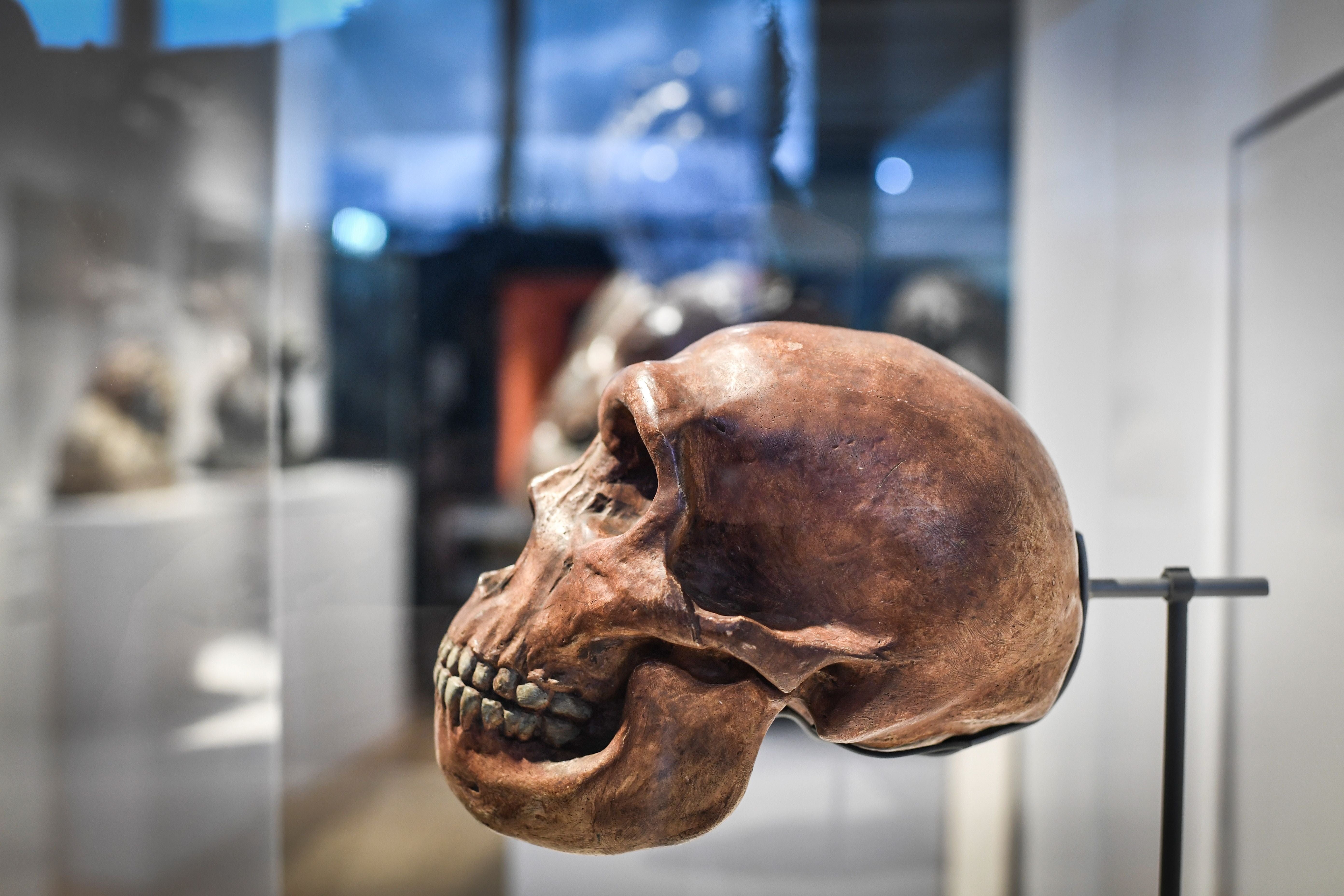
They are believed to have been accomplished ambush predators who were able to cooperate and think strategically to take down woolly mammoths while work to reconstruct their vocal tract suggests that they had least 25 per cent of the vocal capacity of modern humans – more than enough to form an effective protolanguage.
Their thickened brow ridge and large nose cavities are telling but it’s the distinctive depression at the back of the skull that is their most unmistakeable, distinctive identifying feature, and for hundreds of thousands of years, the Neanderthal population stretched from North Wales across Eurasia to Siberia and even the borders of modern-day China.
So where did it all go wrong for the Neanderthals? Because the cave sites they favoured as living quarters are so well suited to the preservation of bone, each new archaeological discovery provides new clues and so far, the fossil record has remains from over 1000 Neanderthal individuals, giving us a tantalising glimpse of what may have caused the end of the Neanderthals.
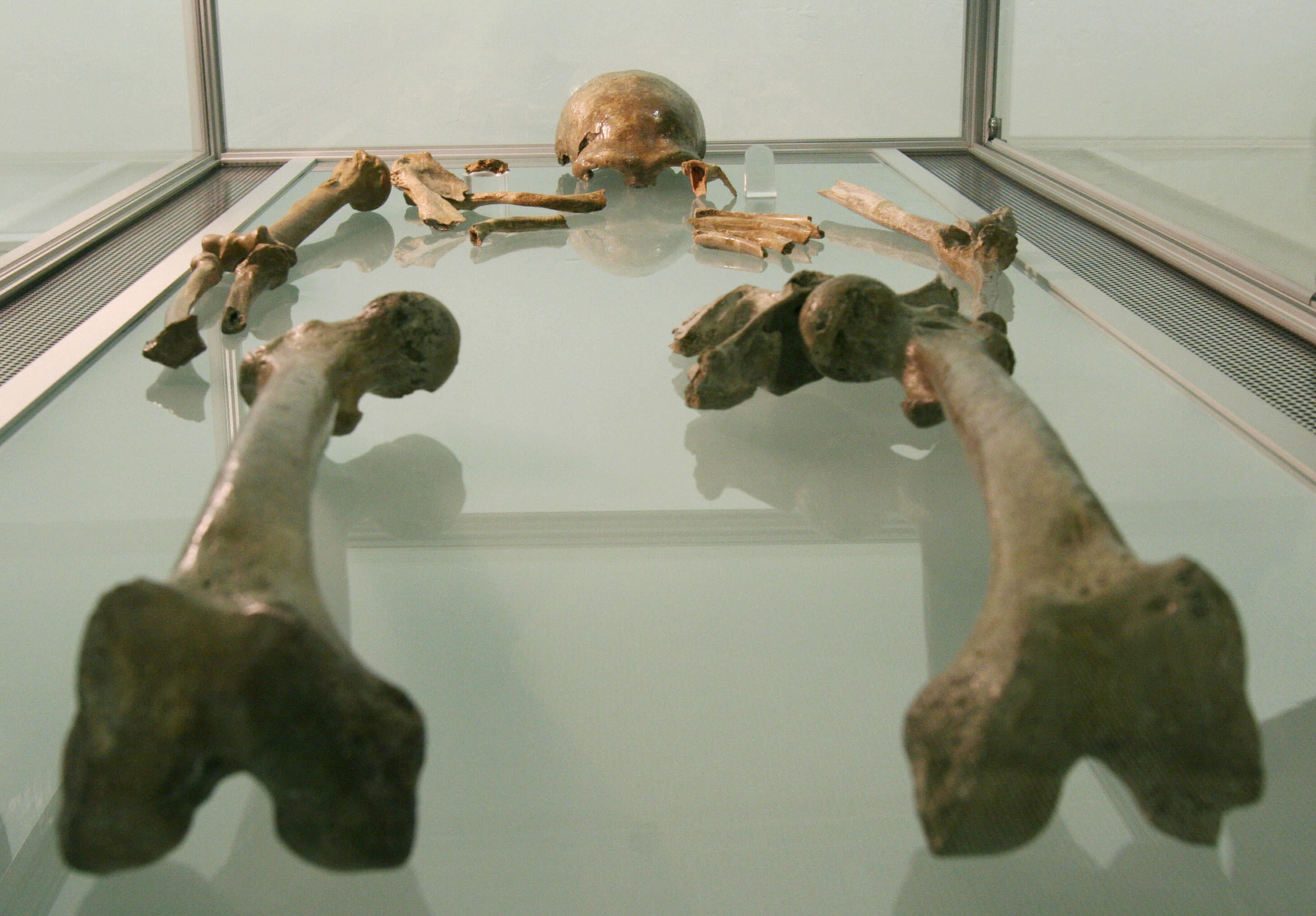
The Neanderthal extinction is unlikely to be a singular event but instead a complex process involving multiple factors playing out over millennia. Neanderthals died out in different parts of Europe at different times for local reasons that varied from one location to another.
However, climate change is likely to be the most significant factor. A sudden cooling of the planet around 50,000 years ago is likely to have disturbed the ecosystem and stressed populations of the medium to large mammals they hunted. From that point on, dramatic cold snaps lasting around roughly 1000 years coincide with their gradual extinction.
Neanderthal populations seem to have contracted and retreated to increasingly remote core areas in an attempt to survive. As a species, Neanderthals are thought to have been overly reliant on a narrow carnivorous diet and their presumed inability to adapt their hunting methods led to their depletion.
Dunbar’s research has established that different species of primates have an optimum number of members before hierarchies and relationships begin to break down
But if our early modern human ancestors discovered ways to survive, why weren’t Neanderthals able to adapt to the new environmental challenges? Although Neanderthals were clearly accomplished stone workers, stone tools recovered from sites spanning hundreds of thousands of years show little sign of technological advancement, fuelling a theory that Neanderthals might not have been great innovators.
The same period of stasis and malaise was apparent in our Homo sapiens ancestors in Africa until about 100,000 years ago when they experienced a “cognitive revolution” or intellectual “great leap forward”. This was probably rooted in a sudden advance in language and conceptualisation capabilities.
University College London archaeologist, Stephen Shennan, has proposed that the rate of cultural innovation accelerated exponentially when our early modern human ancestors began living in ever larger groups that required advanced social and cognitive skills and this is supported by the work of University of Oxford anthropologist, Robin Dunbar.
Dunbar’s research has established that different species of primates have an optimum number of members before hierarchies and relationships begin to break down and groups split into rival troupes. Dunbar has famously established that modern humans can maintain stable relationships with 150 people which is why that remains the optimum size for effective companies, rural villages, effective military units and personal social media networks.
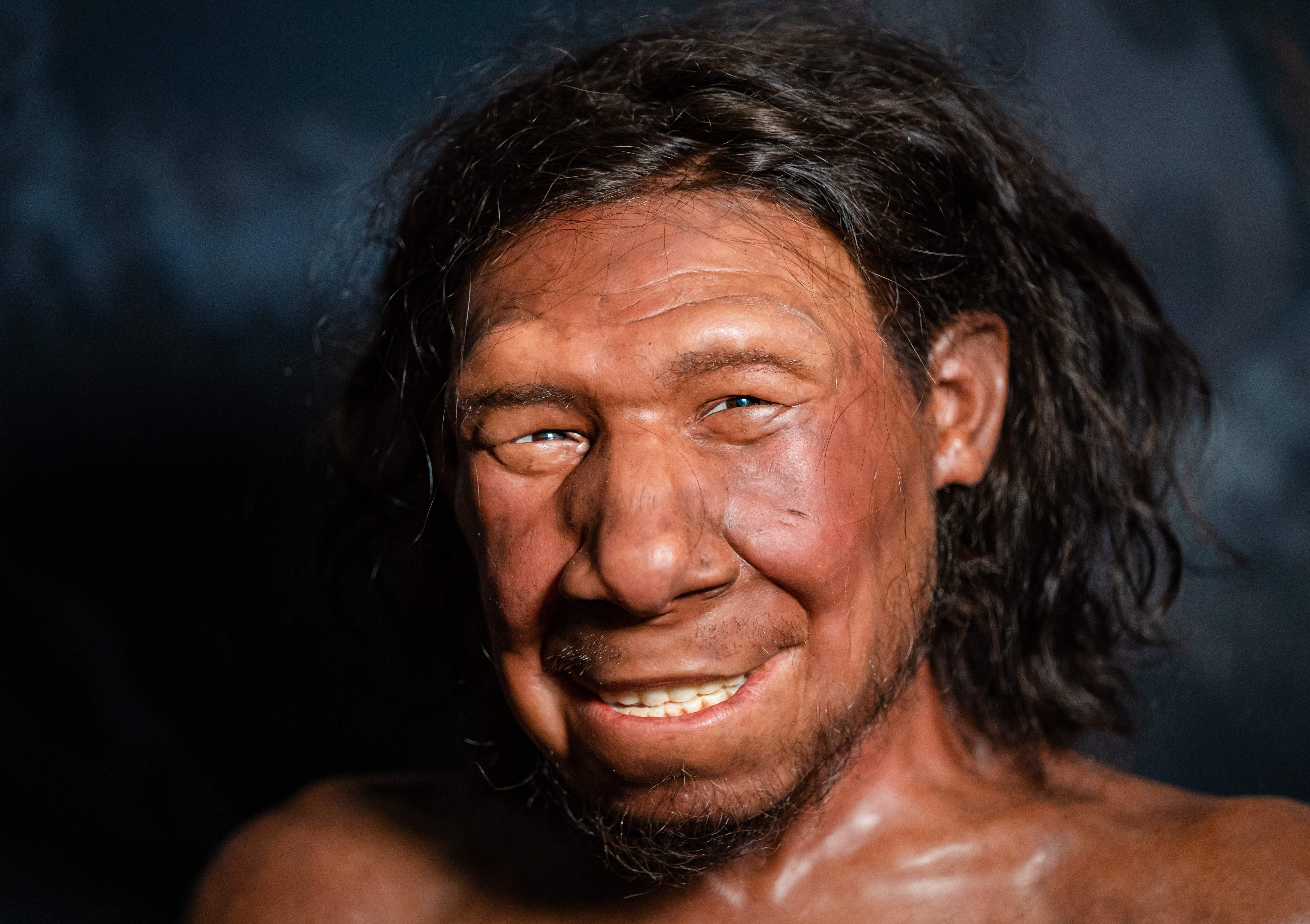
For our early modern human ancestors communities of 150 people would make us a formidable force but according to Dunbar our real power was derived from the way our language developed to keep track and share useful information about our friends and rivals. The gossip theory views the development of human language as an evolutionary adaption for storytelling. Gossip helped hold larger groups of humans together but it also gave birth to fiction, artistic creation and crucially the ability to discuss things that are not immediately before our eyes.
Yuval Noah Harari's bestselling book Sapiens uses Dunbar's gossip theory to argue that it was the distinctively human trait of telling stories and thinking in abstract terms that really allowed us to inherit the earth.
He argues that fiction and myth are the essential foundation of ideas that can break through the Dunbar threshold of 150, transforming discrete human communities into a complex culture that shares inter-tribal innovation, invaluable trading networks, religions and eventually nation states of millions or even billions of people:

“Yet none of these things exists outside the stories that people invent and tell one another,” writes Harari. “There are no Gods in the universe, no nations, no money, no human rights, no laws and no justice outside the common imagination of human beings.”
There is also certainly evidence to suggest that early modern humans had already developed long distance trade networks, that would protect them against starvation when sudden unpredictable food shortages threatened their survival.
In contrast, before the arrival of early modern humans, Europe seems to have been sparsely populated by very small, dispersed, and insular Neanderthal communities which explains delays in their technological advancement.
Recent advances in DNA analysis of Neanderthal remains have also yielded revealing results. Bones recovered from a Croatian cave in the 1980s belonged to a female Neanderthal who had lived 52,000 years ago, but who was astonishingly similar genetically to another Neanderthal who had lived in Siberia 122,000 years ago. The fact that two Neanderthals separated by nearly 4000 miles and 70,000 years were so closely related supports the theory that Neanderthals’ low genetic diversity contributed to their extinction.

In contrast, a recent study carried out by the University of Denmark found that the genomes of contemporaneous early modern humans were far more genetically diverse which supports the theory that ancient humans lived in far larger networked communities that helped them swap sexual partners, genes and ideas with greater regularity.
Their far greater diversity would also make them more resistant to infectious diseases, and generally more successful as a species. Incest seems to have been taboo in early modern human culture, whereas Neanderthal genomes reveal far higher rates of inbreeding which was necessitated by their tendency to live in such isolated communities.
Most anthropological archaeologists believe that Neanderthals were capable of fairly sophisticated language but their cultural insularity would mean that whenever they encountered other groups of Neanderthals the language barriers would inhibit the spread of Neanderthal networking.
But it wasn’t just our propensity to network that gave our ancestors the edge. Quantitative changes had occurred in our ancestors’ brains during the “Cognitive Revolution” in Africa that made them better equipped to survive in hostile environments
Evolving separately in Europe, Neanderthal brains had less developed parietal lobes and cerebellum, areas implicated in tool use, creativity, problem solving and higher-order conceptualisation, and so it’s likely that our ancestors managed to survive the challenges of climate change because they were more resourceful innovators.
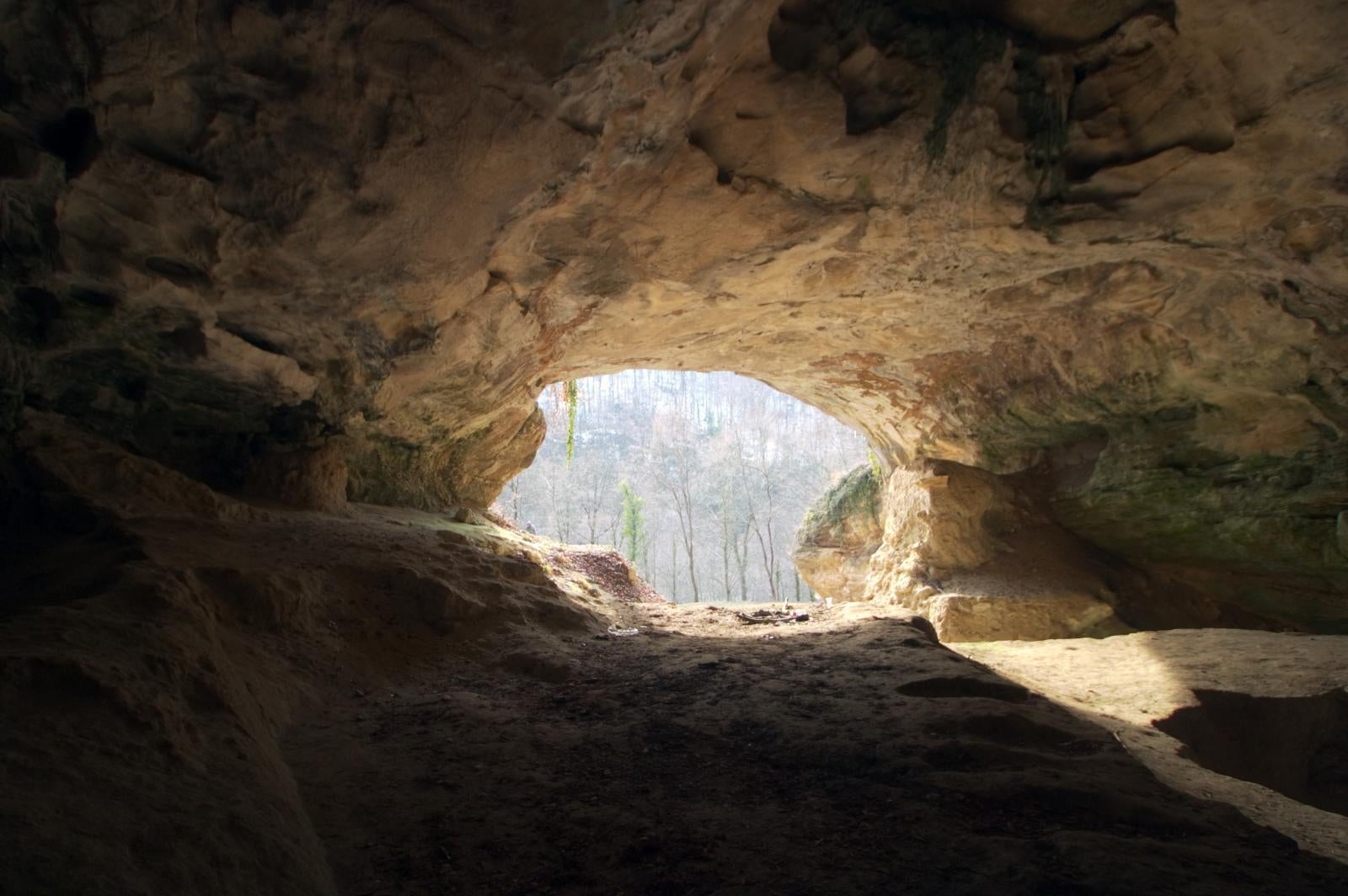
Sewing may not seem like a revolutionary technology but associated skills like weaving allowed us to make nets, snares and traps which allowed younger and older members of early modern human communities to hunt smaller mammals and bring in a far wider range of protein-rich food.
While our ancestors would continue to develop ever savvier ways of killing animals from a distance using projectile weapons and, later, bows and arrows, it’s believed that Neanderthals remained overly wedded to the close-up ambush hunting that proved such a dangerous occupational hazard.
And yet later Neanderthal sites began to show evidence of more sophisticated technologies just before their extinction. According to a theory put forward by Paul Mellars, professor emeritus of prehistory at Cambridge University, they had started to imitate their new human neighbours.
Neanderthals were producing cave art in three separate sites in Spain 20,000 years before modern humans first arrived in Europe
But in terms of innovation, it was perhaps a case of too little too late. Mellars’s comparative analysis of population density in human and Neanderthal sites in southern France is revealing. He concluded that after arriving in Europe with a population of just a few thousand, modern humans soon outnumbered Neanderthals by a ratio of ten to one.
Anthropologist Pat Shipman argues that because early anatomical humans were taller and skinnier with lower metabolisms, they were more energy efficient hunter-gatherers who needed fewer calories to survive in a challenging environment.
Their superiority as long-distance endurance athletes was aided by their domestication of wolves which enabled them to track prey more effectively and protect valuable carcasses from other predators and so outcompete Neanderthal rivals.
Recent improvements in radio-carbon dating suggest with a 95 per cent confidence that around 45,000 years ago, modern humans and Neanderthals overlapped in Europe for between 2,600 and 5,400 years. Their disappearance so soon after our ancestors’ arrival in Europe may suggest that we hastened their extinction. The disappearance of the Neanderthals is one of history’s most compelling mysteries and some believe we were directly responsible.
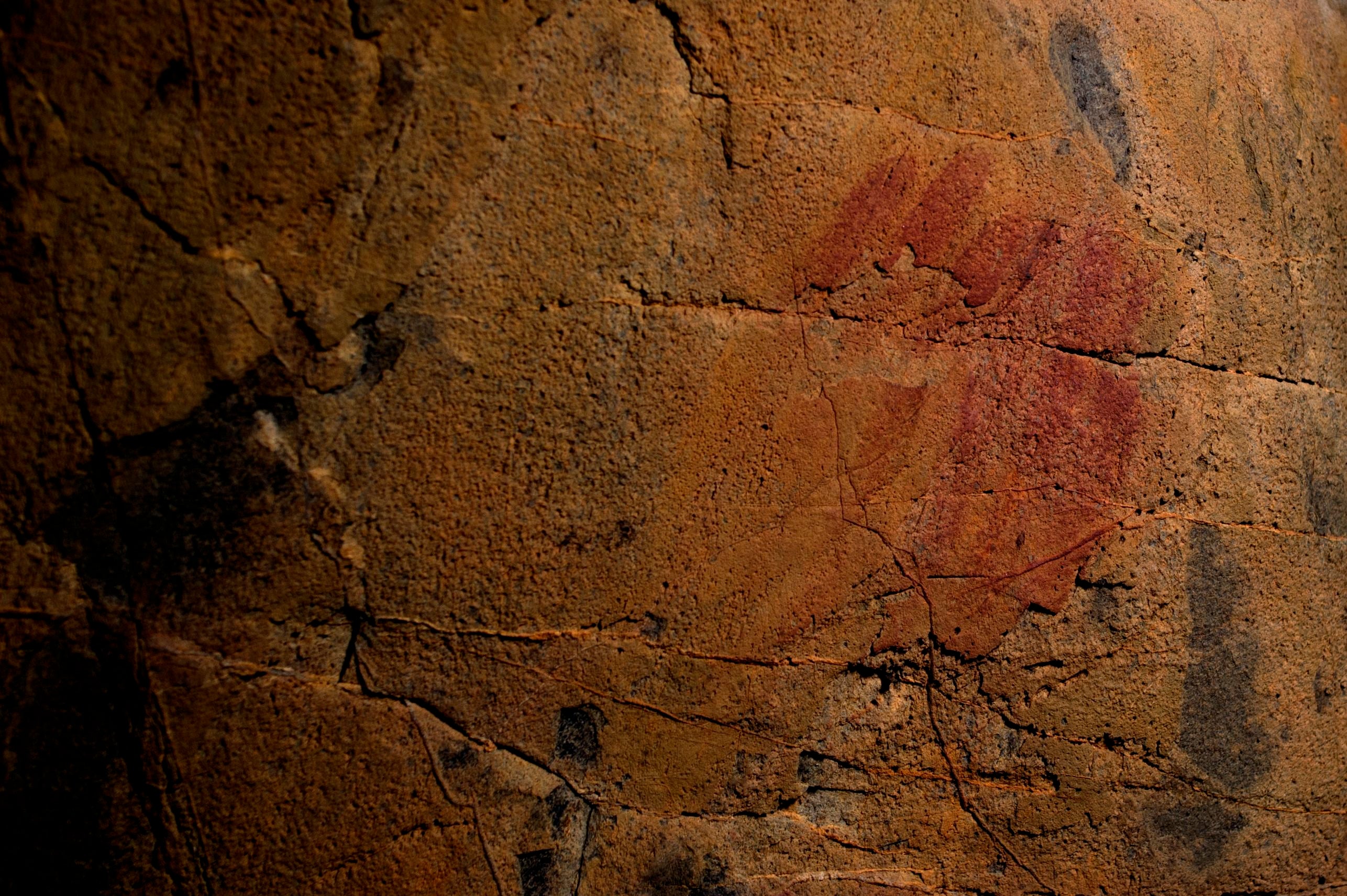
It’s certainly true that two very similar, predatory species cannot coexist indefinitely in the same space and there is likely to have been competition for living space, cave sites and hunting resources. But given that populations were so small and that it’s estimated there was only one hominid per 100 sq km, opportunities for co-existence, sustained competition, or even chance meetings must have been rare.
But we do know there were at least some brief encounters. Until recently, it was thought Neanderthals and early modern humans had lived entirely separate existences, but in 2014 evolutionary geneticists shocked the scientific community by announcing that Neanderthals were not entirely extinct after all.
Analysis of the modern human genome had revealed that almost everyone alive today whose ancestry was outside of sub-Saharan Africa carries a little bit of Neanderthal DNA in their genes because instances of interbreeding had certainly occurred whenever early humans had encountered Neanderthals throughout their intertwining histories. Therefore there is a little bit of Neanderthal in many of us around the world.
New archaeological finds continue to provide tantalising glimmers of a sophisticated Neanderthal culture. When it comes to language and intellectual development, symbolic representation matters, so it’s perhaps telling that recent research carried out by the Max Planck Institute for Evolutionary Anthropology has used uranium-thorium dating to show that Neanderthals were producing cave art in three separate sites in Spain 20,000 years before modern humans first arrived in Europe. If Neanderthals did indeed share symbolic thinking it’s likely they may have been almost cognitively indistinguishable from their new modern human neighbours. It’s likely that Neanderthals were perhaps just 30,000 years behind us and died out before they had the chance to complete the great cognitive leap forward taken by our African ancestors 100,000 years ago.
Perhaps because of their physical prowess, our burly, thick-browed cousins have been misrepresented as primal brutes but it’s likely that they were also a compassionate people. Neanderthal remains reveal horrific hunting injuries that healed a long time before death, suggesting they cared for their wounded long after they were capable of contributing to the group’s survival. Just like early modern humans, they buried their dead quite possibly as a means of preserving their body for an afterlife. Later Neanderthal burial sites certainly contain grave goods and one site in Iraq even revealed high levels of pollen, suggesting that they were buried with flowers.
Join our commenting forum
Join thought-provoking conversations, follow other Independent readers and see their replies
Comments



Bookmark popover
Removed from bookmarks